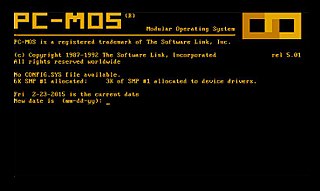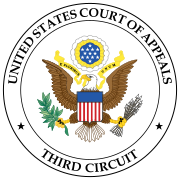An end-user license agreement or EULA is a legal contract between a software supplier and a customer or end-user, generally made available to the customer via a retailer acting as an intermediary. A EULA specifies in detail the rights and restrictions which apply to the use of the software.
A declaratory judgment, also called a declaration, is the legal determination of a court that resolves legal uncertainty for the litigants. It is a form of legally binding preventive by which a party involved in an actual or possible legal matter can ask a court to conclusively rule on and affirm the rights, duties, or obligations of one or more parties in a civil dispute. The declaratory judgment is generally considered a statutory remedy and not an equitable remedy in the United States, and is thus not subject to equitable requirements, though there are analogies that can be found in the remedies granted by courts of equity. A declaratory judgment does not by itself order any action by a party, or imply damages or an injunction, although it may be accompanied by one or more other remedies.
Shrinkwrap contracts or shrinkwrap licenses are boilerplate contracts packaged with products; use of the product is deemed acceptance of the contract.
Trespass to chattels is a tort whereby the infringing party has intentionally interfered with another person's lawful possession of a chattel. The interference can be any physical contact with the chattel in a quantifiable way, or any dispossession of the chattel. As opposed to the greater wrong of conversion, trespass to chattels is argued to be actionable per se.
SoftMan Products Co. v. Adobe Systems Inc. was a lawsuit heard in the U.S. District Court for the Central District of California in 2001 by Judge Dean D. Pregerson.

PC-MOS/386 is a multi-user, multitasking computer operating system produced by The Software Link (TSL), announced at COMDEX in November 1986 for February 1987 release. PC-MOS/386, a successor to PC-MOS, can run many MS-DOS programs on the host machine or a terminal connected to it. Unlike MS-DOS, PC-MOS/386 is optimized for the Intel 80386 processor; however early versions will run on any x86 computer. PC-MOS/386 used to be proprietary, but it was released as open-source software in 2017.

The Software Link, Inc. (TSL) was a company in Norcross, Georgia that developed software for personal computers from 1986 to 1994. The company was co-founded by Rod Roark and Gary Robertson.

ProCD, Inc. v. Zeidenberg, 86 F.3d 1447, was a court ruling at the United States Court of Appeals for the Seventh Circuit. The case is a significant precedent on the matter of the applicability of American contract law to new types of shrinkwrap licenses that arose with home computing and the Internet in the 1990s, and whether such licenses are enforceable contracts.

Specht v. Netscape, 306 F.3d 17, is a ruling at the United States Court of Appeals for the Second Circuit regarding the enforceability of clickwrap licenses under contract law. The court held that merely clicking on a download button does not show consent with license terms, if those terms were not conspicuous and if it was not explicit to the consumer that clicking meant agreeing to the license.

Jacobsen v. Katzer was a lawsuit between Robert Jacobsen (plaintiff) and Matthew Katzer (defendant), filed March 13, 2006 in the United States District Court for the Northern District of California. The case addressed claims on copyright, patent invalidity, cybersquatting, and Digital Millennium Copyright Act issues arising from Jacobsen under an open source license developing control software for model trains.
Field v. Google, Inc., 412 F.Supp. 2d 1106 is a case where Google Inc. successfully defended a lawsuit for copyright infringement. Field argued that Google infringed his exclusive right to reproduce his copyrighted works when it "cached" his website and made a copy of it available on its search engine. Google raised multiple defenses: fair use, implied license, estoppel, and Digital Millennium Copyright Act safe harbor protection. The court granted Google's motion for summary judgment and denied Field's motion for summary judgment.

Bragg v. Linden Research, Inc., 487 F. Supp. 2d 593, was a ruling at the United States District Court for the Eastern District of Pennsylvania. The case resulted in an important early ruling on the enforceability of an online End User License Agreement (EULA) under American contract law, though it did not ultimately gain influence as a precedent. The ruling also clarified the matter of personal jurisdiction for a dispute involving a user of a website that originates in a different region.
Data General Corp. v. Digital Computer Controls, Inc. was a 1971 case in which the Delaware Court of Chancery determined that widespread, confidential disclosure of trade secrets does not necessarily compromise their secrecy. Data General Corporation distributed design documentation with its Nova 1200 minicomputer, notifying owners of the confidentiality of these design drawings through contractual agreements and explicit text on the drawings. After acquiring drawings with a Nova 1200 purchase, Digital Computer Controls designed its own nearly identical minicomputer. Digital Computer Controls maintained that its use of the documentation was proper because Data General Corporation inadequately maintained the secrecy of the design drawings by distributing them to many customers. The court found that Data General Corporation had sufficiently protected the secrecy of the drawings and that Digital Computer Controls was thus in violation of trade secret law for improperly using confidential information.

Microsoft Corp. v. Harmony Comps. & Elecs., Inc., 846 F. Supp. 208, was an Eastern New York District Court decision regarding copyright infringement and breach of license agreement. Microsoft Corp. filed the lawsuit against Harmony Comps. & Elecs., Inc. and its president, Stanley Furst, seeking declaratory and injunctive relief and treble damages. The defendants did not contest the plaintiff's claim that Harmony sold Microsoft's products without any licenses or authorization, or that they sold Microsoft's products stand-alone, which violated Microsoft's license agreement. Instead, the defendants argued that their action was protected by the first-sale doctrine 17 U.S.C §109(a) (1977). After reviewing the facts, the court found that the defendants' action constituted copyright infringement, and that the first-sale doctrine did not apply since the defendants failed to prove that the Microsoft products they sold were lawfully acquired. The court also ruled that the defendants breached Microsoft's software license agreement by selling the products stand-alone.

MDY Industries, LLC v. Blizzard Entertainment, Inc and Vivendi Games, Inc., 629 F.3d 928, is a case decided by the United States Court of Appeals for the Ninth Circuit. At the district court level, MDY had been found liable under theories of copyright and tort law for selling software that contributed to the breach of Blizzard's End User License Agreement (EULA) and Terms of Use (ToU) governing the World of Warcraft video game software.
The court's ruling was appealed to the United States Court of Appeals for the Ninth Circuit, which reversed the district court in part, upheld in part, and remanded for further proceedings. The Court of Appeals ruled that for a software licensee's violation of a contract to constitute copyright infringement, there must be a nexus between the license condition and the licensor’s exclusive rights of copyright. However, the court also ruled, contrary to Chamberlain v. Skylink, that a finding of circumvention under the Digital Millennium Copyright Act does not require a nexus between circumvention and actual copyright infringement.

Facebook, Inc. v. Power Ventures, Inc. is a lawsuit brought by Facebook in the United States District Court for the Northern District of California alleging that Power Ventures Inc., a third-party platform, collected user information from Facebook and displayed it on their own website. Facebook claimed violations of the CAN-SPAM Act, the Computer Fraud and Abuse Act ("CFAA"), and the California Comprehensive Computer Data Access and Fraud Act. According to Facebook, Power Ventures Inc. made copies of Facebook's website during the process of extracting user information. Facebook argued that this process causes both direct and indirect copyright infringement. In addition, Facebook alleged this process constitutes a violation of the Digital Millennium Copyright Act ("DMCA"). Finally, Facebook also asserted claims of both state and federal trademark infringement, as well as a claim under California's Unfair Competition Law ("UCL").

Arista Records LLC v. Lime Group LLC, 715 F. Supp. 2d 481, is a United States district court case in which the Southern District of New York held that Lime Group LLC, the defendant, induced copyright infringement with its peer-to-peer file sharing software, LimeWire. The court issued a permanent injunction to shut it down. The lawsuit is a part of a larger campaign against piracy by the Recording Industry Association of America (RIAA).

Oracle Corp v. SAP AG, No. 4:07-cv-01658, was a United States District Court for the Northern District of California case in which Oracle sued SAP, alleging that SAP had engaged in copyright infringement by downloading thousands of copyrighted documents and programs from Oracle's Customer Connection website. SAP admitted that its subsidiary TomorrowNow had infringed Oracle's copyrights and a jury awarded Oracle record-high damages in the amount of $1.3 billion. Judge Phyllis Hamilton later vacated the jury's verdict, which was based on the calculation of a hypothetical license, and granted SAP's motion for a new trial dependent on Oracle rejecting a remittitur of $272 million. In November 2014, an appeals court ruled for $356.7 million in damages, a decision which was accepted by both parties.
Finjan, Inc. v. Secure Computing Corp., 626 F.3d 1197 (2010), was a patent infringement case by the United States Court of Appeals for the Federal Circuit involving "proactive scanning" technology for computer security. The Federal Circuit made a mixed decision after hearing the appeals from both sides. In terms of infringement, the Federal Circuit affirmed Secure Computing's infringement on Finjan's system and storage medium patent claims but reversed the infringement on Finjan's method claim. In terms of damage award, the Federal Circuit not only affirmed the previous $9.18 million award by the United States District Court for the District of Delaware, but also remanded for the district court to assess the extra damages between the post-judgement and pre-injunction period.
Open source license litigation involves lawsuits surrounding open-source licensed software. Many of the legal rights of open source software licensors enforceable against users violating licensing agreements are untested by the U.S. legal system. Free and open source software (FOSS) is distributed under a variety of free-software licenses, which are unique among other software licenses. Legal action against open source licenses involves questions about their validity and enforceability.









